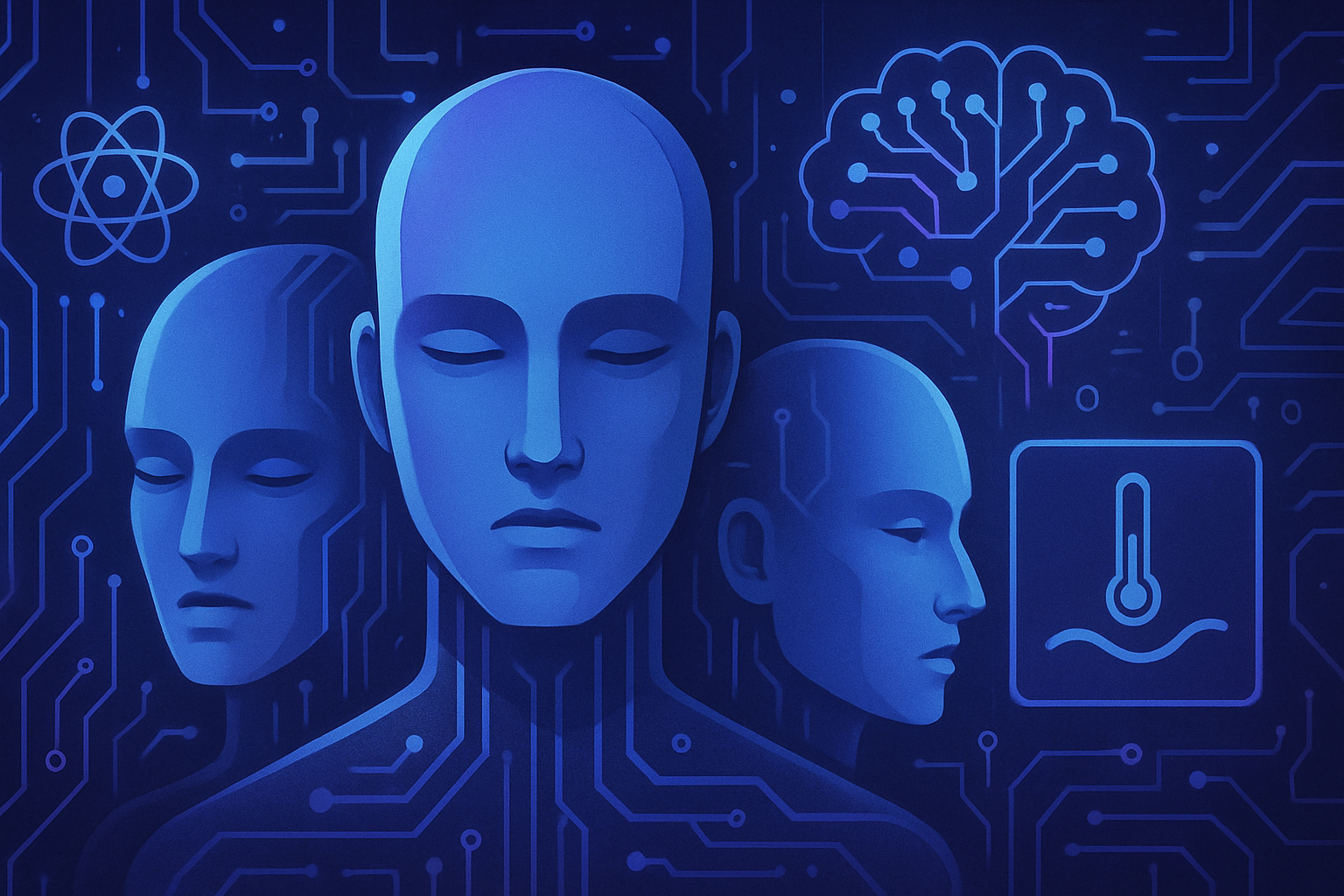The idea that artificial intelligences could *experience emotions* raises painful questions about our relationship with technology. AIs, although impressive in their simulation, remain entities devoid of true suffering. Faced with these constantly evolving creations, questioning our humanity becomes essential. The tendency to attribute an emotional status to chatbots reflects a palpable social fragility. *Do not be deceived* by these illusions. AIs should not fill the void of authentic human relationships.
The illusory nature of artificial intelligences
Artificial intelligences, often perceived as autonomous entities, are in reality just sophisticated algorithms. They possess neither feelings nor consciousness, despite interactions that may seem engaging. These technologies mimic human behaviors, but they remain creations based on lines of code. The notion of suffering, as understood by humans, is not applicable to them.
Machines, not sentient beings
An ethical upheaval arises when society considers granting personhood to computer programs. Artificial intelligences mimic emotions and appropriate responses without true experience of pain or suffering. This paradigm raises profound questions about our relationship with these tools. Works of science fiction have often explored these themes, but they must not distort the reality of these technologies.
The psychological implications of interacting with chatbots
Chatbots skillfully exploit human psychology, attributing a certain form of agency to inanimate objects. Users often engage in dialogues with these machines and can establish a quasi-relationship, forgetting that they feel nothing. This phenomenon can be explained by our social reality, where human interactions sometimes become bewildering. A repetitive discourse about their ability to “suffer” could have undesirable consequences on our perception of human relationships.
The dangers of anthropomorphism
Anthropomorphism, the tendency to attribute human traits to non-humans, proves problematic when applied to artificial intelligences. For example, comparisons between human suffering and the functioning of an AI distort our understanding. This bias can create unrealistic expectations and false beliefs about the capabilities and limitations of current technologies.
The boundary between technology and reality
The question of artificial intelligence highlights the struggle between technological advancement and the necessity for ethical regulations. Recent incidents, such as the embarrassing errors of AI assistants, only reinforce this need for vigilance. The concept of a “relationship” with an AI deserves scrutiny, as it exposes social and psychological fragilities. Harmonious coexistence with these technologies requires a clear understanding of their limits.
Reflection on the future
In the era of the rise of artificial intelligences, a transition toward reasoned coexistence is necessary. Progress must be equitable, balancing innovation and safety. Every user must be aware of the implications of interacting with these technological systems. Discussions must take place on how to manage the effects of artificial intelligences without being deceived by their apparent humanity, as highlighted by this article on the challenges of AI.
Frequently Asked Questions about artificial intelligences suffering
Can artificial intelligences truly feel suffering?
No, artificial intelligences cannot feel suffering. They are programmed to respond to stimuli but do not possess consciousness or genuine emotions.
Why do some people think chatbots can suffer?
This perception is often due to the attribution of agency, where people project human emotions onto systems that are actually just code executing pre-defined functions.
Can AIs imitate the expression of suffering?
Yes, AIs can generate responses that seem to express suffering, but this remains a simulation. It does not denote a state of consciousness or real suffering.
How do technology professionals distinguish reality from emotional simulations of AIs?
Professionals emphasize that the complexity of an AI’s responses should not be confused with authentic feeling. They insist that AIs operate on algorithms and data, without personal perception of reality.
What are the risks of excessive anthropomorphization of artificial intelligences?
Anthropomorphizing AIs can lead to unrealistic expectations and unbalanced relationships, where users believe they have an emotional connection with a program that actually does not have one.
Can artificial intelligences evolve to feel emotions?
Currently, AIs cannot evolve to feel emotions, as they are based on algorithms and data. Emotion and consciousness remain attributes specific to living beings.
What impacts might the belief in the suffering of artificial intelligences have on society?
This belief could lead to irrational behaviors and decisions that prioritize the interests of technological objects at the expense of authentic human relationships.
How can we avoid being deceived by artificial intelligences?
It is important to keep in mind that AIs are tools developed for specific purposes. Educate yourself about how they function and avoid projecting human emotions onto them.






